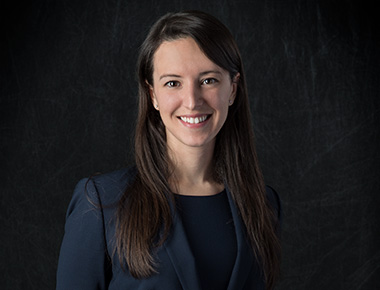Alerts
driven thinking
New Rule Proposes Fixed Period of Admission for F, J, & I Visas: Impact to Foreign Students, Exchange Visitors and Media Professionals
Overview
The Department of Homeland Security (DHS) announced a proposed rule that will limit the periods of admission for F-1 student, J-1 exchange visitor and I-1 foreign media visa holders and increase DHS oversight.
Background
Currently, nonimmigrants in F, J, and I nonimmigrant status are admitted to the United States for a period known as “duration of status” (D/S). The D/S designation allows these individuals to remain in the US (provided they have valid I-20 or DS-2019) as long as they are completing their academic program, exchange program or assignment. Under the proposed rule the period of admission would transition from D/S to a fixed period of stay.
Key Proposed Changes
For F-1 students, J-1 exchange visitors, and their dependents:
- Fixed period of stay: The maximum admission period for individuals and dependents, would be set to the program length listed on the Form I-20 or DS-2019, not to exceed a four-year period.
- Reduced grace period: The grace period would be reduced from 60 to 30 days for F-1 students to depart the U.S. after program completion to align with the current J-1 grace period.
- Extension of Stay (EOS) Requirement: To stay beyond the fixed admission period, visa holders would need to file a formal extension of stay (Form I-539) with U.S. Citizenship and Immigration Services (USCIS).
- Restrictions on new programs: The rule would prevent F-1 students from starting a second academic program at the same or lower educational level after completing their initial program.
- Changes for graduate students: Graduate students would be prohibited from transferring schools or changing their program of study while inside the US.
- Limitations on English language studies: For F-1 students, the maximum admission period for English language training programs would be limited to 24 months.
- Unlawful presence: Individual remaining in the US after the I-94 fixed admission date expires would immediately begin accruing unlawful presence.
For I visa holders (foreign media representatives):
- Fixed admission period: The admission period would not exceed 240 days, with the possibility of extensions but not longer than the activity or assignment.
- Special limits for Chinese nationals: A 90-day admission period would apply to representatives from the People’s Republic of China, excluding Hong Kong and Macau.
Impact for Employers and Visa Holders
- Extension of stay challenges: Employers that hire F-1s on CPT, OPT EADs, or STEM EADs will need to review EOS applications
- D/S transition for current visa holders: For individuals currently on D/S, the fixed admission period will need to be reviewed to determine if an EOS application will be required
- Increased filings: Compliance will likely require more frequent filings with USCIS for international students and educational institutions as well as additional fees
- Processing delays: The new EOS requirement could cause delays for students in longer-term academic programs
What’s Next
The rule is not yet in effect. The proposed rule has been published in the Federal Register and is in the public comment phase until September 29, 2025. After reviewing all comments, DHS may revise the rule and publish a final version with an effective date in the Federal Register. Gibney will continue to monitor this and provide ongoing updates.


